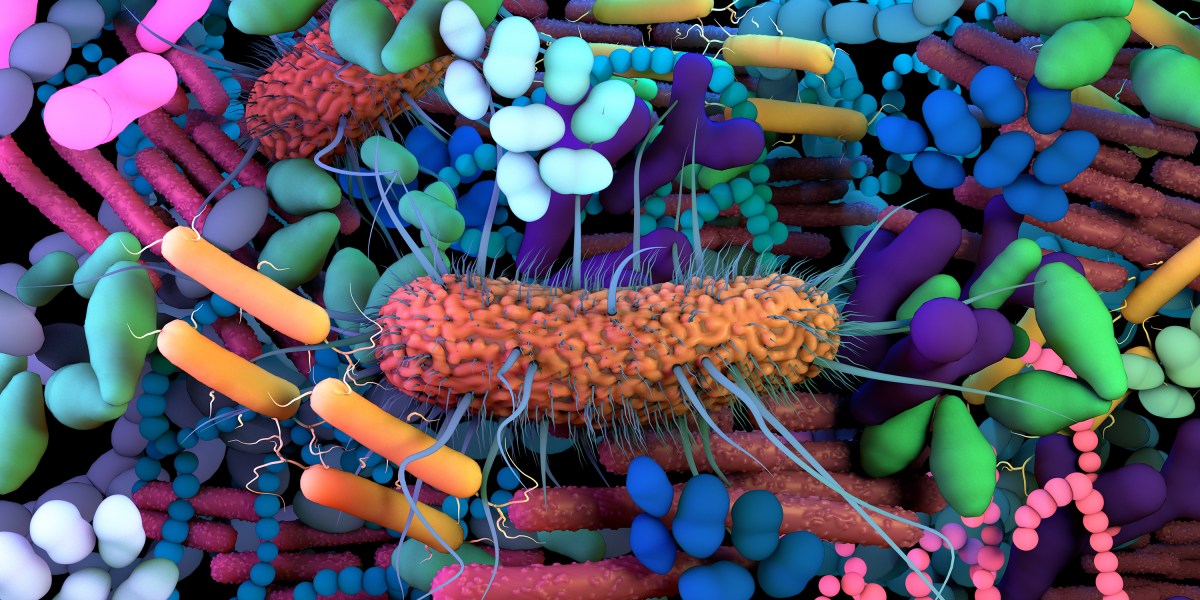How gene-edited microbiomes could improve our health

The work being done here is still in its early stages. But the researchers envision an oral treatment that would be fed to babies to manipulate their microbiomes. They don’t have a specific age in mind, but it could be quite soon after birth.
As long as the modified microbes aren’t making anything harmful, it should be relatively straightforward to approve these treatments, says Ringeisen. “Those are experiments that are going to be relatively easy to do,” he says.
Justin Sonnenburg, a professor of microbiology and immunology at Stanford University in California, is also looking at ways to reengineer the microbes in our guts to improve our health. One important target is inflammation—a process that has been linked to all sorts of diseases, ranging from arthritis to cardiovascular disease.
Microbes that live in our guts can sense inflammation, says Sonnenburg. If we could “rewire the genetic circuit” of these microbes, we could potentially enable them to secrete anti-inflammatory compounds that treat inflammation if and when it arises. “All this [would be] happening behind the scenes without the person harboring the microbes even knowing about it,” he says.
One of the challenges will be to develop a treatment that works the same way in different people, who will have different microbiomes. But there may be some ways around this. In a study a few years ago, Sonnenburg and his colleagues delivered a modified microbe into the guts of mice. This microbe glowed under a microscope, so the scientists could tell how well it had settled in the mice’s intestines. It was quite variable—some of the mice had more of the microbes than others.


